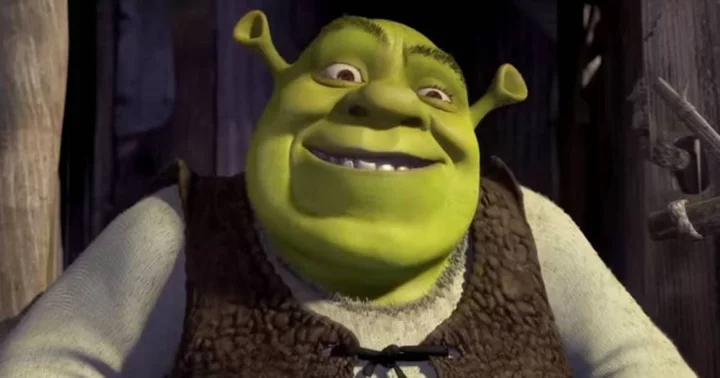LOS ANGELES, CALIFORNIA: Martin Scorsese, 80, recently revealed that he is working on a new film centered on Jesus. The filmmaker announced the project while having a private audience with Pope Francis during a visit to the Vatican in Rome on Saturday, May 27, 2023. While not much is known about Scorsese’s upcoming religious film, the director found himself in the middle of a major controversy after the release of his last Biblical epic titled ‘The Last Temptation Of Christ’.
The film, released in 1988, starred Willem Dafoe as Jesus, Barbara Hershey as Mary Magdalene, Harvey Keitel as Judas, and David Bowie as Pontius Pilate. The project revolved around “the life of Jesus Christ, his journey through life as he faces the struggles all humans do, and his final temptation on the cross,” as per the IMDb synopsis. It showed Jesus being challenged with temptations like lust, fear, depression, doubt, and reluctance, sparking major outrage in the Christian community.
READ MORE
‘The Last Temptation of Christ’ sparked major public outcry
Scorsese’s film ‘The Last Temptation of Christ’ was based on Nikos Kazantzakis’s novel of the same name. Kazantzakis faced mass backlash when he published the book in 1955. He was excommunicated by the Greek Orthodox Church, while his novel was banned by the Catholic Church. Scorsese faced a nearly similar response when directed and released the novel-inspired film in 1988. Both the book and the movie sparked major public outcry and faced mass condemnation from devout Christian groups.
Two of the chief organizations protesting the film were the American Family Association and Campus Crusade for Christ (CCC). Bill Bright, the founder of both organizations, expressed his desire to purchase all the film’s prints in their entirety in order to destroy them. Meanwhile, Mother Angelica, a Catholic nun and founder of Eternal Word Television Network, described the film as “the most blasphemous ridicule of the Eucharist that's ever been perpetrated in this world” and “a holocaust movie that has the power to destroy souls eternally.”
Bishop Anthony G Bosco of New York had slammed the characterization of Jesus in the film and told the Los Angeles Times, “I looked in vain for the message of love. Scorsese has given us an angry Christ, a bumbling Christ, a Christ more of this world than the next.”
The movie also led to a string of protests and bans across the US as well as beyond the nation. One protest, organized by a religious Californian radio station, saw nearly 600 protesters picketing the headquarters of Universal Studios’ then-parent company MCA.
A protestor even dressed up as MCA Chairman Lew Wasserman and pretended to nail Jesus’ hands into a wooden cross. On October 22, 1988, an Integralist Catholic group allegedly set fire to the Saint Michel cinema in Paris, which was showing the film. The incident severely destroyed the theater and injured thirteen people, four of whom suffered from major burns. Several cinema chains in Georgia, Louisiana, California, and Oklahoma banned the film, and movie rental chain Blockbuster refused to carry it on home video.
However, Universal Studios refused to give in to the protest and responded to the controversy in an open letter, stating that it would not succumb to the backlash and refrain from infringing upon the First Amendment rights of Americans to see the film. Meanwhile, the film remained banned in several countries, including Greece, South Africa, Turkey, Mexico, Chile, and Argentina, for several years. Reports suggest the movie continued to be banned in the Philippines and Singapore, as of July 2020.
Why was ‘The Last Temptation of Christ’ deemed as controversial?
Although Scorsese opened ‘The Last Temptation of Christ’ with a statement that read, “This film is not based on the Gospels, but upon the fictional exploration of the eternal spiritual conflict,” staunch Christians believed the portrayal of Jesus as a man capable of mortal sins and desires was blasphemous. Scorsese’s Jesus was represented as a man torn between his humane desires and his divine responsibilities.
He was shown as a figure struggling with temptations of pride, lust, fear, depression, and doubt like every other common man. He was even portrayed as a carpenter, who joined hands with the Romans to crucify Jewish rebels, while Judas was depicted as the one to confront and rebuke him for being a traitor. In one of the scenes, Jesus can be seen admitting to a group of Puritans, “Im a liar, a hypocrite; I'm afraid of everything. I don't ever tell the truth, I don't have the courage... I don't steal, I don't fight, I don't kill — not because I don't want to — but because I'm afraid.”
Scorsese’s Jesus then goes on to confess, “I want to rebel against you, against everything, against God, but I'm afraid. You want to know who my mother and father is? You want to know who my God is? Fear! You look inside me and that's all you'll find.”
Conservative Christians were immediately left offended with the portrayal of their savior as a man begging forgiveness for his worldly sins. Critics were quick to point out the Jesus’ depiction in ‘The Last Temptation of Christ’ went against the teachings of the Gospels, which presents him as the Messiah from birth and not an ordinary human chosen by God to save the world.
Perhaps one of the most controversial aspects of the film that left the religious community highly offended was Jesus partaking in original sin. The movie was heavily slammed for showing Jesus marrying Mary Magdalene and consummating the marriage as well as per displaying his imaginations about experiencing an ordinary life with Magdalene and engaging in sexual activities while being nailed to the cross.
Christians condemned the film for deviating from the Gospels and portraying Jesus, who is deemed the “son of God” and believed to have never engaged in any mortal sins, as a man capable who is partly a sinner filled with mortal desires. While the Gospels mention Jesus being tempted by Satan in the desert, unlike the film he is not influenced or moved by the efforts of the devil.









